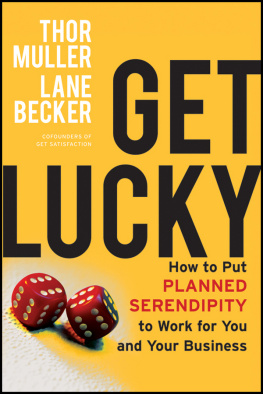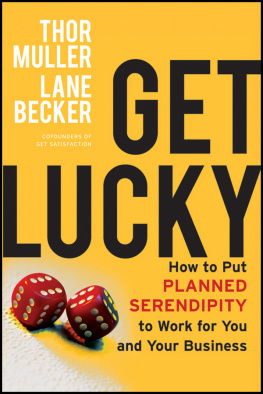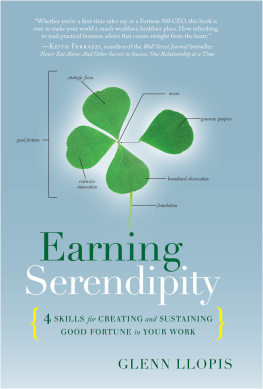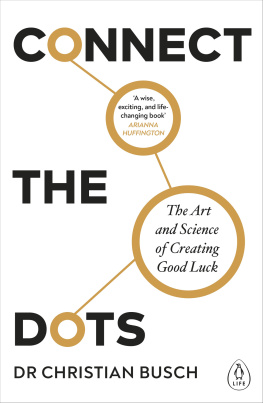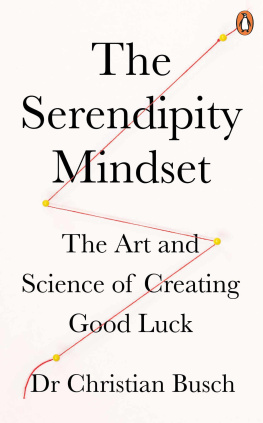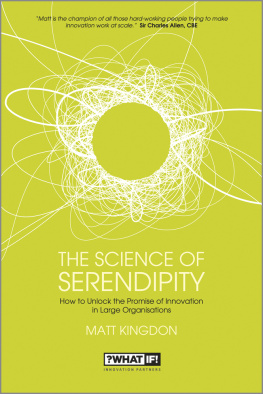Copyright 2012 by Thor Muller and Lane Becker. All rights reserved.
Published by Jossey-Bass
A Wiley Imprint
989 Market Street, San Francisco, CA 94103-1741www.josseybass.com
One Montgomery Street, Suite 1200, San Francisco, CA 94104-4594www.josseybass.com
Cover photograph by Steve Allen | Brand X | Getty (RF)
No part of this publication may be reproduced, stored in a retrieval system, or transmitted in any form or by any means, electronic, mechanical, photocopying, recording, scanning, or otherwise, except as permitted under Section 107 or 108 of the 1976 United States Copyright Act, without either the prior written permission of the publisher, or authorization through payment of the appropriate per-copy fee to the Copyright Clearance Center, Inc., 222 Rosewood Drive, Danvers, MA 01923, 978-750-8400, fax 978-646-8600, or on the Web at www.copyright.com. Requests to the publisher for permission should be addressed to the Permissions Department, John Wiley & Sons, Inc., 111 River Street, Hoboken, NJ 07030, 201-748-6011, fax 201-748-6008, or online at www.wiley.com/go/permissions.
Limit of Liability/Disclaimer of Warranty: While the publisher and author have used their best efforts in preparing this book, they make no representations or warranties with respect to the accuracy or completeness of the contents of this book and specifically disclaim any implied warranties of merchantability or fitness for a particular purpose. No warranty may be created or extended by sales representatives or written sales materials. The advice and strategies contained herein may not be suitable for your situation. You should consult with a professional where appropriate. Neither the publisher nor author shall be liable for any loss of profit or any other commercial damages, including but not limited to special, incidental, consequential, or other damages. Readers should be aware that Internet Web sites offered as citations and/or sources for further information may have changed or disappeared between the time this was written and when it is read.
Jossey-Bass books and products are available through most bookstores. To contact Jossey-Bass directly call our Customer Care Department within the U.S. at 800-956-7739, outside the U.S. at 317-572-3986, or fax 317-572-4002.
Wiley publishes in a variety of print and electronic formats and by print-on-demand. Some material included with standard print versions of this book may not be included in e-books or in print-on-demand. If this book refers to media such as a CD or DVD that is not included in the version you purchased, you may download this material at http://booksupport.wiley.com. For more information about Wiley products, visit www.wiley.com.
Library of Congress Cataloging-in-Publication Data
Muller, Thor, 1971
Get lucky : how to put planned serendipity to work for you and your business /
Thor Muller, Lane Becker. 1st ed.
p. cm.
Includes bibliographical references and index.
ISBN 978-1-118-24975-8 (cloth), ISBN 978-1-118-27647-1 (ebk), 978-1-118-27693-8 (ebk), 978-1-118-27694-5 (ebk)
1. Success in business. 2. Creative ability in business. I. Becker, Lane, 1973
II. Title.
HF5386.M828 2012
650.1dc23
2012001579
For those who accept what we are, and celebrate what we aren'tCourtney, Amy, Quinn, and Tesla.
The world is much larger than you can imagine right now. Which means, you are much larger than you can imagine.
William Deresiewicz
Chapter 1
Prepare for the Unpreparable
Luck is merely an illusion, trusted by the ignorant and chased by the foolish.
Timothy Zahn
I'm a great believer in luck, and I find the harder I work, the more I have of it.
Thomas Jefferson
The audience greeted the young entrepreneur with a hero's welcome. He walked out onto the stage of the conference hall and looked out into the audience. The applause was deafening.
It was the fall of 2005, the last day of the Web 2.0 Summit in San Francisco. Sergey Brin, the 32-year-old cofounder of Google, was making a surprise on-stage appearance with John Battelle, the conference host.
Though it's hard to believe now, in this era of a new wave of Internet success stories such as Facebook, Twitter, Zynga, and Pandora, back in 2005 most of the world still thought of the Internet as a financial sinkhole whose moment had permanently passed after the technology stock bubble burst in 2000. The several hundred people at this conference, true believers in the business potential of the Web, knew otherwise. All the proof they needed was standing right there in front of them.
Brin, along with his cofounder Larry Page, had started, built, and taken public a company that had managed in just five years to become the greatest engine of wealth creation the world had ever seen. At a time when people were still scoffing at the idea of building a real business on the Internet, Brin and Page had not only done that, but had done it in a way that had made both of them, and several others, billionaires in the process.
The audience quickly fell silent as Brin sat down. What would he say? What secrets would he reveal? What would he explain to the audience that would help them emulate or understand his unbelievable achievement? Battelle's first question cut straight to the heart of the matter: What, he asked Brin, do you attribute Google's incredible success to?
Brin responded confidently, as if this was just a run-of-the-mill engineering question. The number one factor that contributed to our success was luck .
Silence from the audience. Was that really his answer? Could that possibly be true? He and Page had just blindly stumbled into their fortune? That didn't make any sense. Surely it must have been their superior intellect, their foresight, their dedication and perseverance that led to their success.
Realizing that his answer begged for an explanation, Brin continued: We followed our hearts in terms of research areas, and eventually found we had something pretty useful, and wanted to make an impact with it.
This was a strange kind of luck. He wasn't talking about random interventions or being at the right place at the right time. No, he was talking about motivation, instinct, accidental discoveries, and passion. How was this luck?
If anybody in the audience was disappointed by that answer, they shouldn't have been. Brin was not just being humble. He was sharing a crucial insight: that for something to succeed with the kind of scale and speed that Google did, it requires more to happen than any one person, or even a team of people, can ever fully take responsibility for. This insight was central to how Google's founding team built the company.
By crediting his fortunes (and his fortune) to good luck, Brin wasn't abdicating responsibility for his success. He was acknowledging the creative tension between his personal goals and a world utterly out of his control. Miraculously, Google seemed to have turned this tension into an actual business practice. A practice that changed the world.
Luck Is a Four-Letter Word
It's easy for us to dismiss luck as mere superstition.
When we hear the word, we're likely to picture a gambler on a winning streak, sitting on a stool at a Vegas blackjack table, taking another swig from a glass of whiskey. He has an impressive stack of chips on the table in front of him. At his elbows are the envious faces of his fellow players, and in front of him, the impassive face of a dealer preparing to deal the next hand.
Our gambler knows in his bones that he is on a lucky streak. His confidence has swelled, it seems as if nothing can stand in his way, and his next move is clear: he'll double down at his first opportunity.

